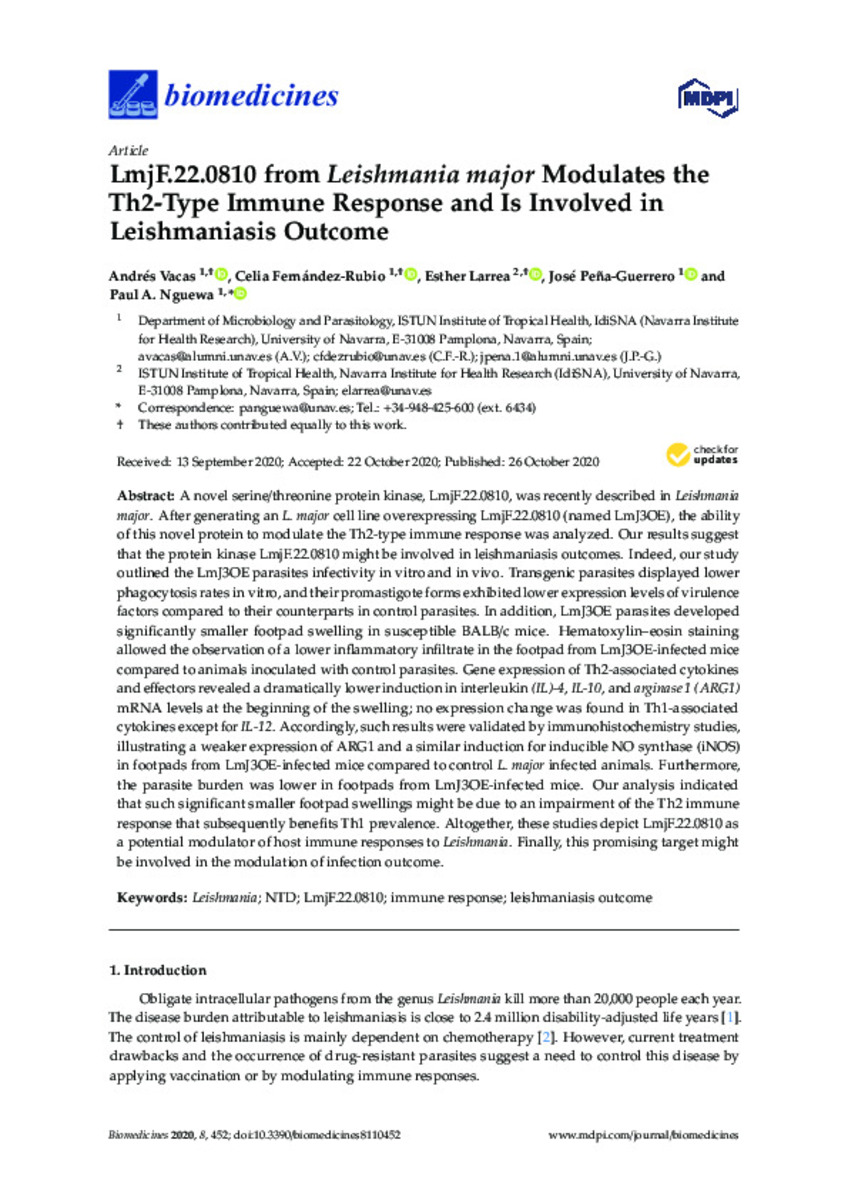LmjF.22.0810 from Leishmania major Modulates the Th2-Type Immune Response and Is Involved in Leishmaniasis Outcome
Keywords:
Leishmania
NTD
LmjF.22.0810
Immune response
Leishmaniasis outcome
Editorial note:
MDPI stays neutral with regard to jurisdictional claims in published maps and institutional
affiliations.
Note:
This article is an open access
article distributed under the terms and conditions of the Creative Commons Attribution
(CC BY) license (http://creativecommons.org/licenses/by/4.0/).
Citation:
Vacas, A. (Andrés); Fernández-Rubio, C. (Celia); Larrea, E. (Esther); et al. "LmjF.22.0810 from Leishmania major Modulates the Th2-Type Immune Response and Is Involved in Leishmaniasis Outcome". Biomedicines. 8 (11), 2020, 452
Statistics and impact
0 citas en

0 citas en

Items in Dadun are protected by copyright, with all rights reserved, unless otherwise indicated.







